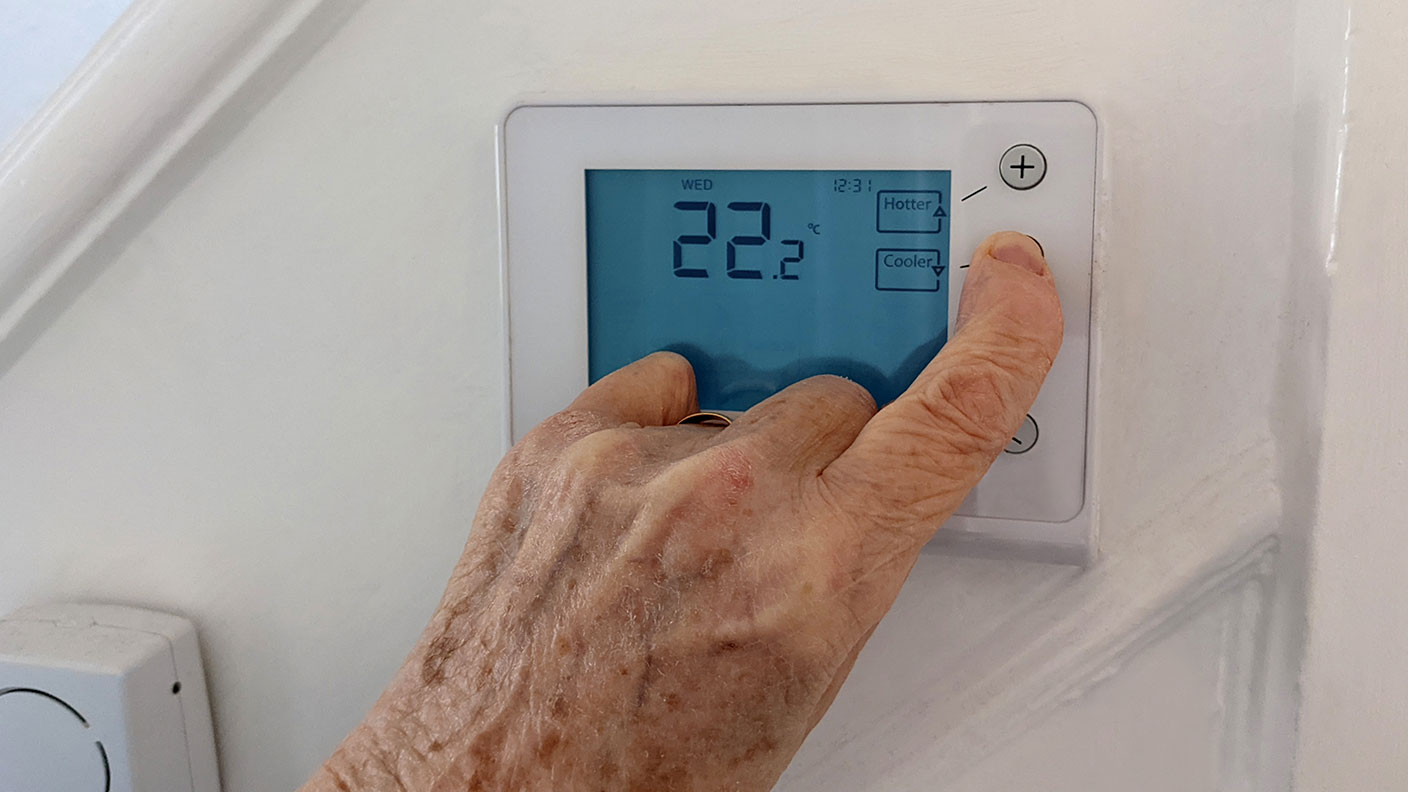EPC rating standards for private landlords set for major overhaul amid ‘biggest ever’ energy efficiency push
The government wants landlords to achieve an EPC rating of at least C in private rented homes. The policy revives plans previously put forward by the Conservatives.


Get the latest financial news, insights and expert analysis from our award-winning MoneyWeek team, to help you understand what really matters when it comes to your finances.
You are now subscribed
Your newsletter sign-up was successful
Want to add more newsletters?

Twice daily
MoneyWeek
Get the latest financial news, insights and expert analysis from our award-winning MoneyWeek team, to help you understand what really matters when it comes to your finances.

Four times a week
Look After My Bills
Sign up to our free money-saving newsletter, filled with the latest news and expert advice to help you find the best tips and deals for managing your bills. Start saving today!
Landlords could be forced to improve the energy efficiency score of their portfolios after the government announced it would be reviving the Conservatives’ Energy Performance Certificate (EPC) plans.
Sir Keir Starmer’s administration will push for a new law that would require rented accommodation to be rated EPC C or above. The move resurrects plans unveiled by the last government, which were dropped after Tory backbenchers rebelled against them.
EPCs have been a controversial topic in recent years, particularly given their accuracy has been questioned. However, having a high EPC rating has been shown to inflate house prices.
MoneyWeek
Subscribe to MoneyWeek today and get your first six magazine issues absolutely FREE

Sign up to Money Morning
Don't miss the latest investment and personal finances news, market analysis, plus money-saving tips with our free twice-daily newsletter
Don't miss the latest investment and personal finances news, market analysis, plus money-saving tips with our free twice-daily newsletter
It comes as the key elements of the Renters Reform Bill - which was lost when Rishi Sunak called the general election - have been brought back to Parliament in the form of Labour’s Renters’ Rights Bill. While at least some landlords appear to have accepted that the reforms will be put in place, many have already been abandoning the buy-to-let sector amid high mortgage rates and poor returns. Rents are also beginning to hit an affordability limit - particularly in the south of England.
Government announces ‘biggest ever’ energy efficiency reforms
Coming in the wake of Energy Secretary Ed Miliband’s speech at the 2024 Labour Party Conference, the government has said it will launch a consultation on minimum energy efficiency standards in rented homes “by the end of the year”. This will form part of its ‘Warm Homes Plan’ which aims to make all homes “cleaner and cheaper to run” by boosting the rollout of insulation, solar panels and heat pumps.
Should the proposals proceed as planned - possibly as soon as the new year - private and social landlords will have to improve their EPC score to grade C or above by 2030. Under current rules, an ‘E’ score is the legal minimum in the private rented sector, while there are no minimum requirements for social housing.
Miliband said these requirements were “below decent standards” and promised “warmer homes, lower bills” for tenants. The government claimed its plans would provide “the biggest potential boost to home energy standards in history” and could lift more than one million households out of fuel poverty.
Buy-to-let sector: EPC rules ‘must be realistic’
Reacting to the announcement, the buy-to-let sector has urged the government to give it enough time and adequate support to reach the desired energy efficiency standards.
Head of policy and campaigns at estate agents professional body Propertymark, Timothy Douglas, said: “Property agents want to see more energy-efficient homes, but new rules and requirements must be realistic and achievable. Furthermore, without providing landlords with incentives and access to sustained funding, it is unlikely that energy efficiency targets for the private rented sector and a reduction in emissions across the property sector will be met.”
Douglas added: “The consultation process must shine a light on the different types of property across the rented sector to ensure the targets, guidance and funding prioritise the most difficult to decarbonise.”
The National Residential Landlords Association (NRLA) pointed out that more than 31% of private rented properties were built before 1919. It added that these homes were “some of the oldest, and hardest to improve, properties” in the UK, and called on the government to set out a “clear and comprehensive plan” for improving energy efficiency.
Its policy director, Chris Norris, said: “The NRLA wants to see all rented properties become as energy efficient as possible. The sector needs a clear trajectory setting out what will be expected of it and by when. This plan must also ensure sufficient numbers of tradespeople are in place to undertake the work that will be required.
“Alongside this, as the Committee on Fuel Poverty has warned, is the need for a financial package to support investment in energy efficiency measures. At present, the private rented sector is the only housing tenure without a bespoke package to support work to upgrade homes.”
The NRLA also pointed out that many of the landlords it represents had already achieved the government’s aims. It highlighted official data from 2022, which showed almost 45% of privately rented homes in England had an EPC rating of at least a C - more than double the percentage recorded in 2012.
Cost of EPC ratings target could be £23.4bn, Rightmove finds
According to report by Rightmove, which was published on 4 October, around 2.9 million homes will need to have their energy efficiency improved to meet the government's proposed target.
By taking recommended energy efficiency improvements from the EPC register and combining them with its whole-of-market data, the property listing website said it had found that the average retrofit bill per property would come to £8,074. At a nationwide level, this would lead to a bill of £23.4 billion, it said.
Reacting to the figures, Rightmove's director of property science, Tim Bannister, said: "It’s clear from our analysis that more needs to be done to help the mass market transition to greener homes, especially those living in homes worth under £400,000.
“In the rental market, through discussions with agents and our research, we know landlords want to provide comfortable, energy-efficient homes, but green upgrades can be costly. For landlords of lower-value properties, the financial returns may not always justify the investment.
“Now that the government has confirmed there will be a consultation on raising the minimum energy efficiency standards in rental homes, we look forward to seeing much needed clarity, and ideally support, for landlords, which in turn should benefit tenants over the medium to long term.”
Get the latest financial news, insights and expert analysis from our award-winning MoneyWeek team, to help you understand what really matters when it comes to your finances.
-
 Should you buy an active ETF?
Should you buy an active ETF?ETFs are often mischaracterised as passive products, but they can be a convenient way to add active management to your portfolio
-
 Power up your pension before 5 April – easy ways to save before the tax year end
Power up your pension before 5 April – easy ways to save before the tax year endWith the end of the tax year looming, pension savers currently have a window to review and maximise what’s going into their retirement funds – we look at how
-
 How much do solar panels cost in the UK - and are they worth installing?
How much do solar panels cost in the UK - and are they worth installing?Solar panels are set to be at the forefront of the government’s plans to make the UK economy greener. But are they cost effective?
-
 Fuel prices could rise again as Opec cuts production
Fuel prices could rise again as Opec cuts productionNews Major oil-producing countries have decided to cut oil production by two million barrels per day – could this mean higher fuel prices?
-
 The fallout from Europe’s energy crisis
The fallout from Europe’s energy crisisNews The soaring price of gas could see the EU impose a cap on the price of electricity generated by nuclear and renewables, while signs of strain appear in the energy derivatives market, and investors are dumping European stocks.
-
 The companies that could benefit from Russia’s gas war
The companies that could benefit from Russia’s gas warTips It’s hard to be an investor right now, but some companies have brighter prospects than others.
-
 Ignore the doomsayers - energy prices could fall next year
Ignore the doomsayers - energy prices could fall next yearOpinion Forecasts suggest the energy prices will continue to spiral, but these projections could turn out to be a lot of hot air.
-
 Why is the petrol price rising again?
Why is the petrol price rising again?Brits are being hit by a triple-whammy of increasing oil prices, a falling pound, and new fuel mix standards that are pushing up petrol prices
-
 Price of gas soars as Moscow turns off the taps
Price of gas soars as Moscow turns off the tapsNews As Russia cuts its gas exports to the EU, the price of natural gas continues to rise. Restricted supplies could see energy rationing and recession in Germany, Europe’s biggest economy.
-
 Get ready for the coming oil glut
Get ready for the coming oil glutAnalysis Investors are assuming that energy prices will stay high. History suggests the opposite, says Max King
